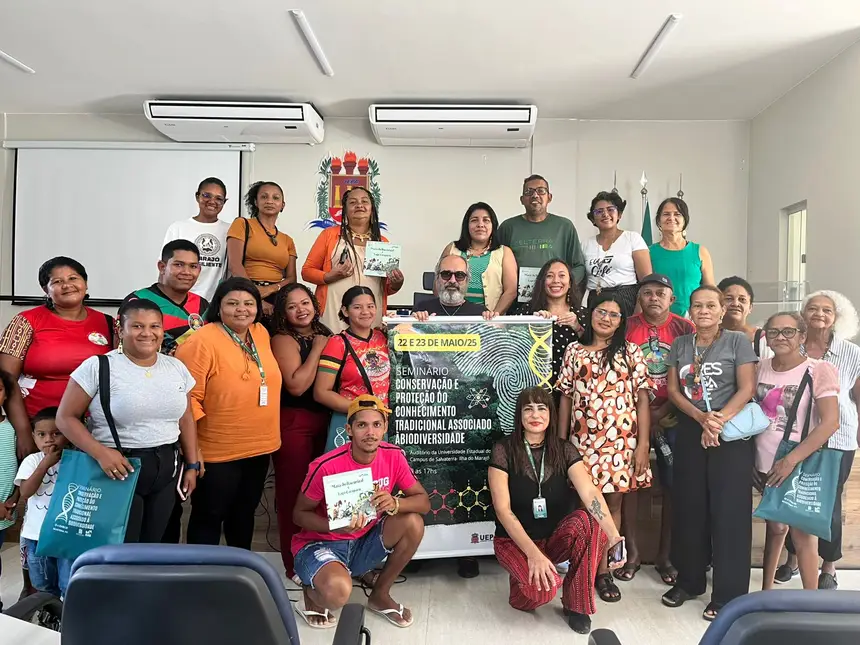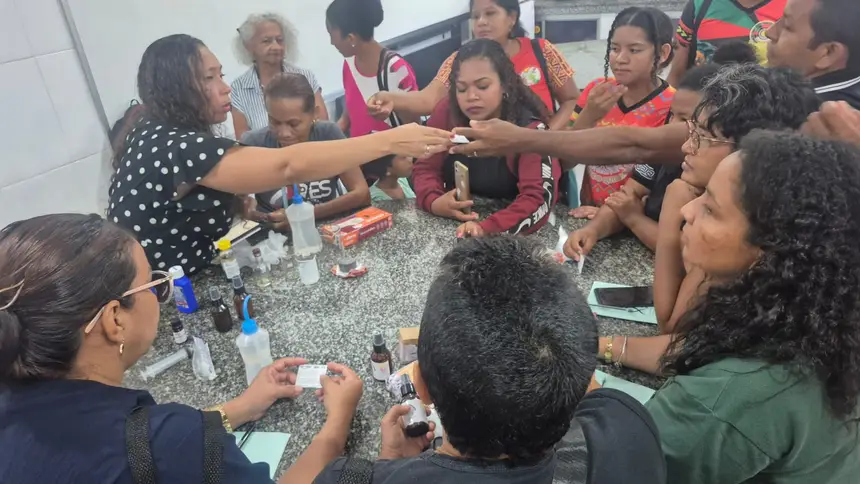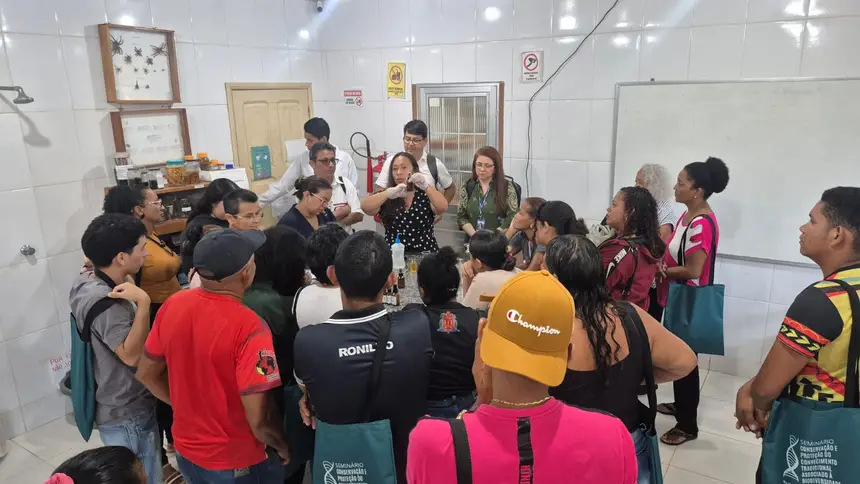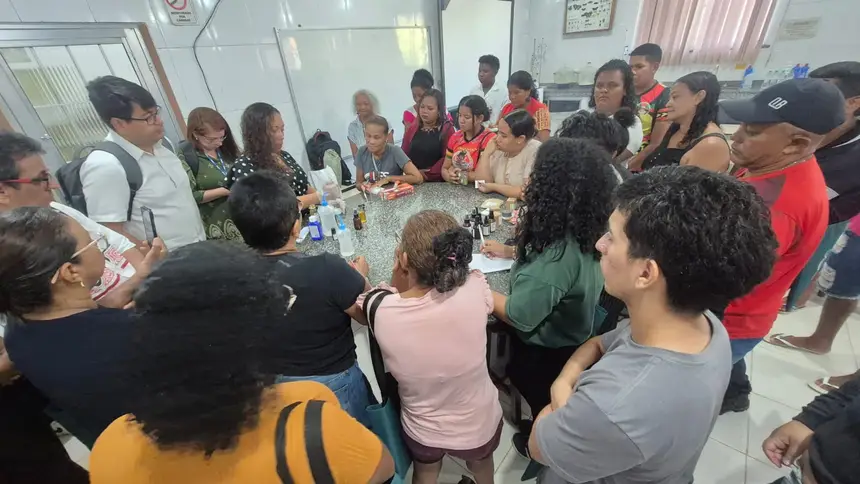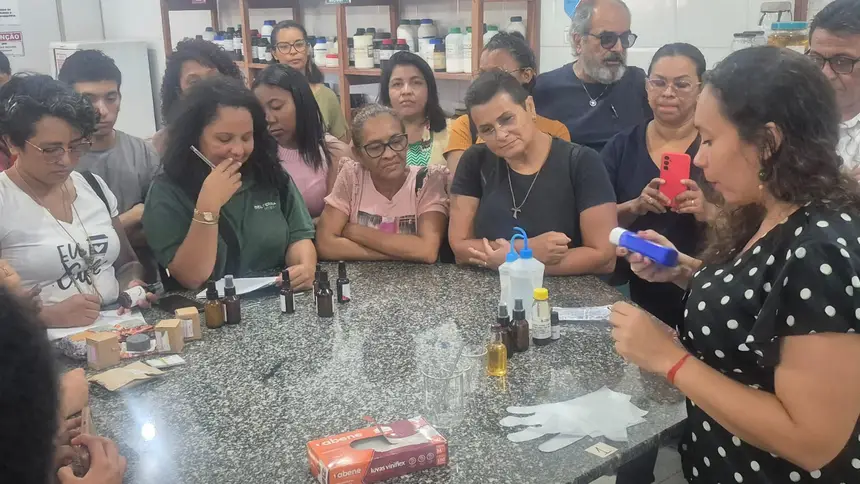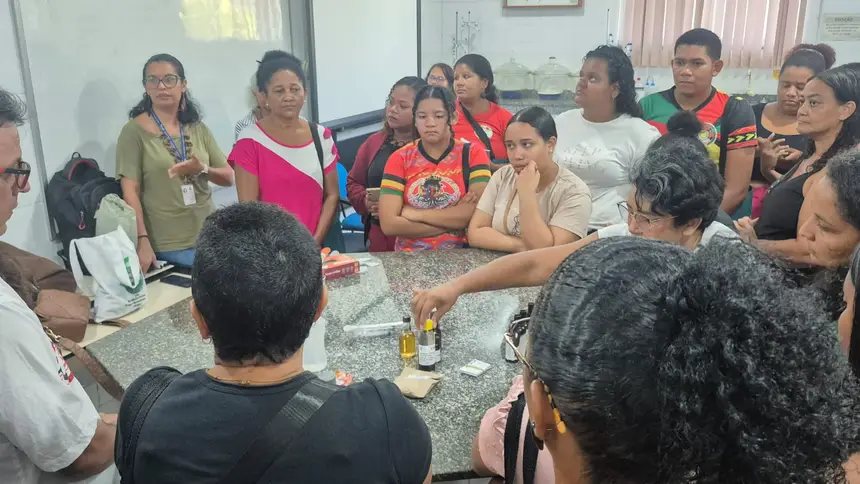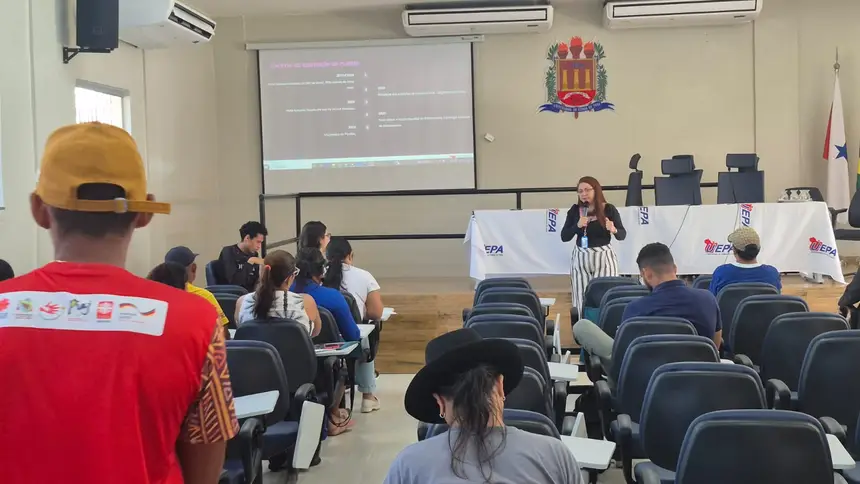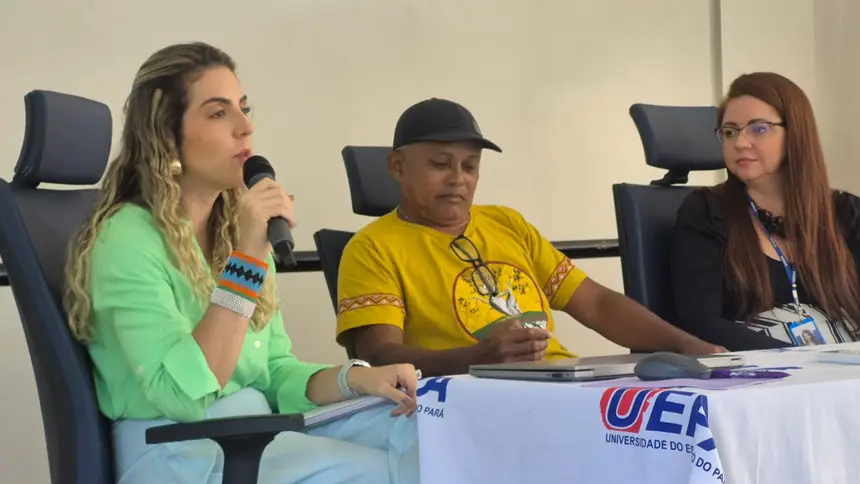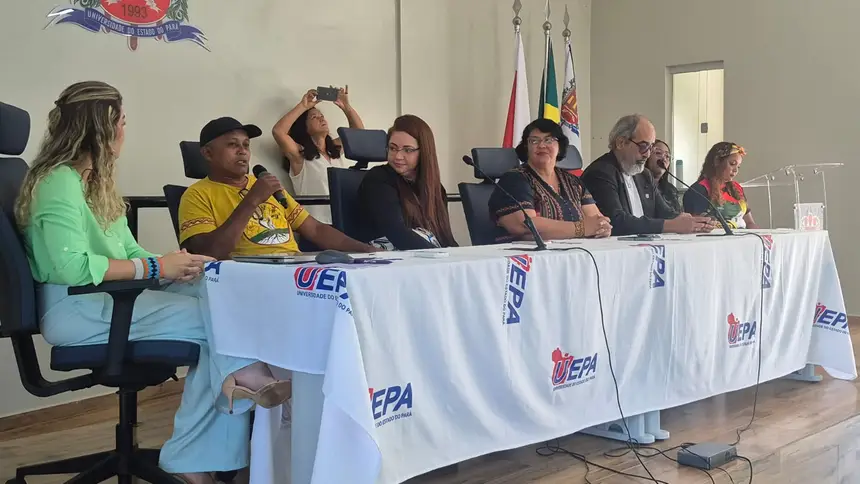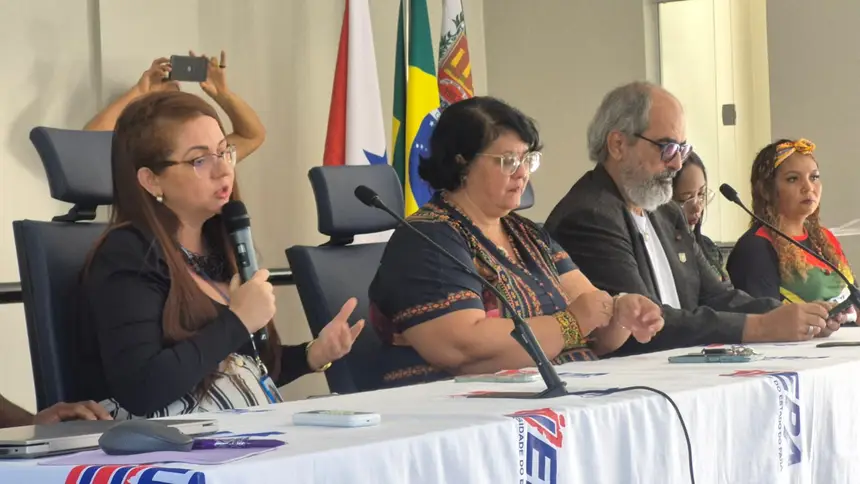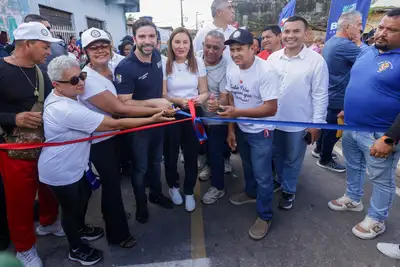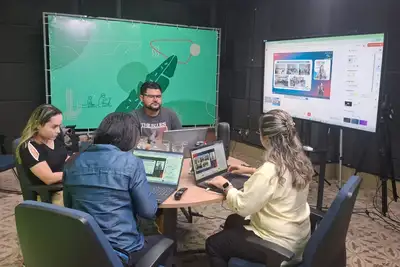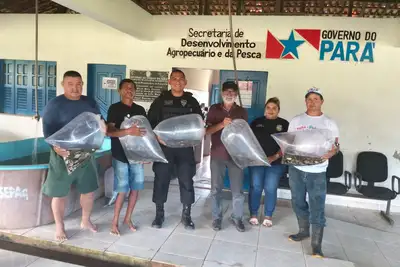Ideflor-Bio launches medicinal management project with quilombola communities of Marajó
On this occasion, the valorization of traditional knowledge and the conservation of Amazonian biodiversity were also discussed.
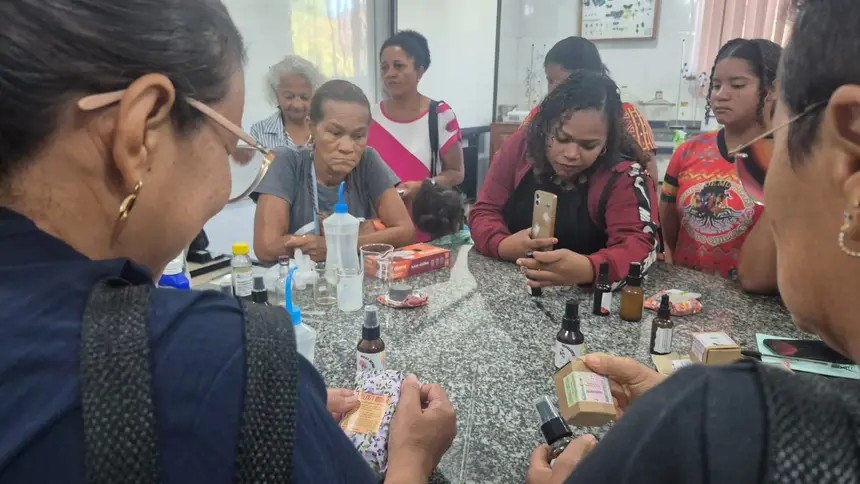
During the Seminar "Protection and Conservation of Traditional Knowledge Associated with Biodiversity", the Institute of Forest Development and Biodiversity of Pará (Ideflor-Bio) officially launched the Community Forest Management Project for Medicinal Species for the Production of Phytotherapeutics in Quilombola Communities of Marajó. The program, held at the auditorium of the State University of Pará (Uepa) - Salvaterra Campus, also debated the valorization of traditional knowledge and the conservation of Amazonian biodiversity.
Executed with resources from the State Forest Development Fund (Fundeflor), the project integrates actions from the Biodiversity Management Directorate (DGBio) and aligns with the guidelines of the State Bioeconomy Plan (Planbio). The initiative stands out as a strategic bet on the sustainable use of biodiversity through the valorization of traditional knowledge, especially in quilombola territories, where forest, culture, and identity walk hand in hand.
The event brought together leaders from the quilombola communities of Rosário and Boa Vista, teachers, students, technicians, researchers, and representatives from public institutions and civil society. The seminar consolidated itself as a space for active listening and dialogue between ancestral knowledge, science, and public policies, reinforcing the central role of traditional communities in building a sustainable development model for the Amazon.
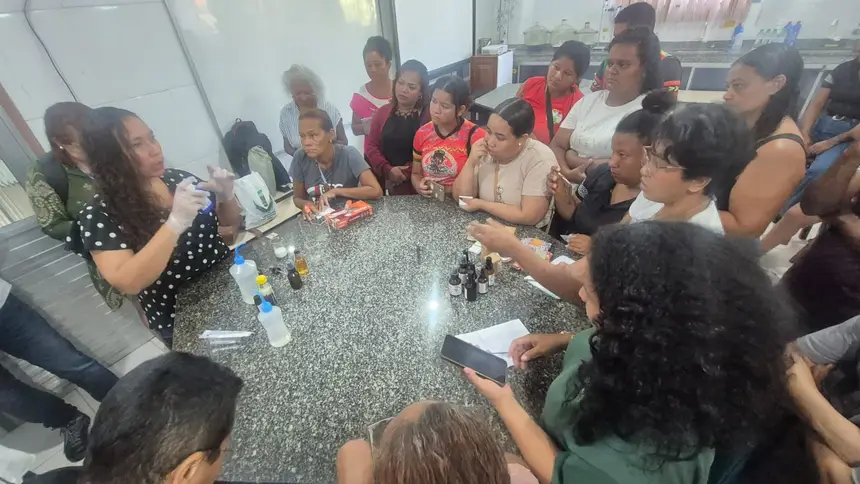
During the thematic panels, topics such as benefit sharing and the legal frameworks of biodiversity gained prominence. Ideflor-Bio's attorney, Ellen Moura, presented the legal challenges of protecting traditional knowledge, focusing on the Biodiversity Law (Law No. 13.123/2015) and the Nagoya Protocol. Meanwhile, Ágila Rodrigues, a technician from the State Secretariat for the Environment and Sustainability (Semas), detailed the actions of Planbio, highlighting the protagonism of traditional populations in strengthening the economy of standing forests.
Goal - The launched project aims to train 60 community agents for the sustainable management of medicinal plants, in addition to the installation of seedling nurseries, drying greenhouses, and living pharmacies in the benefiting communities. Thus, the idea is to strengthen community practices that combine environmental conservation, economic autonomy, and health care through the artisanal production of phytotherapeutics based on knowledge passed down from generation to generation.
The seminar program also included practical workshops, such as the one conducted by the doctoral student from the Federal University of Pará (UFPA), Tahnity Haarad, who taught techniques for the artisanal production of soaps, ointments, and other hygiene products from local inputs. The workshop exemplified the potential of community bioeconomy and the strength of traditional knowledge as tools for territorial development and improvement of quality of life.
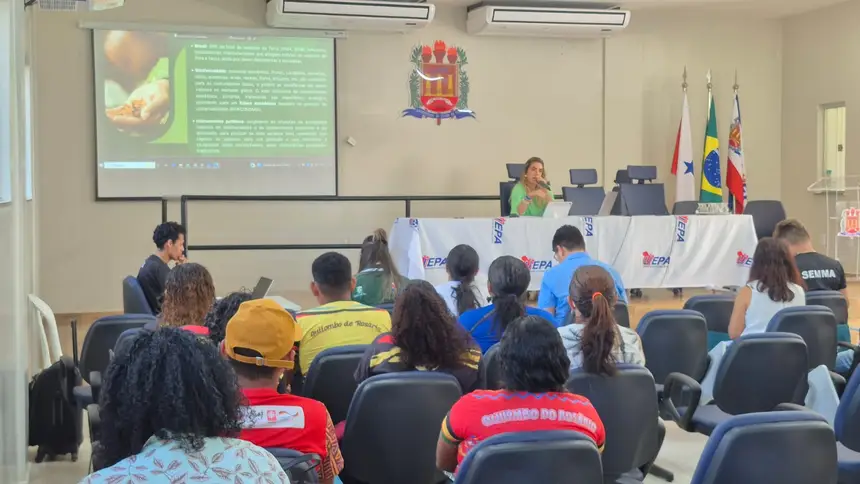
Experiences - Inspiring success stories were presented, including the experience of the Bragantina Network of Phytotherapeutics and the actions of the Ethnopharmacy Laboratory of the Environmental Nucleus of UFPA. Professor Wagner Barbosa highlighted the importance of collaborative research and active listening of communities for building plural science, rooted in territories and connected with the social and environmental challenges of the region.
According to Ideflor-Bio's Environmental Management technician, Claudia Kahwage, who is also one of the event organizers, the seminar symbolizes a step forward in socio-environmental justice policies in Pará. "By promoting the articulation between different forms of knowledge and encouraging the sustainable use of natural resources, Ideflor-Bio takes a concrete step towards building a fairer, more resilient, and inclusive Amazon," she emphasized.
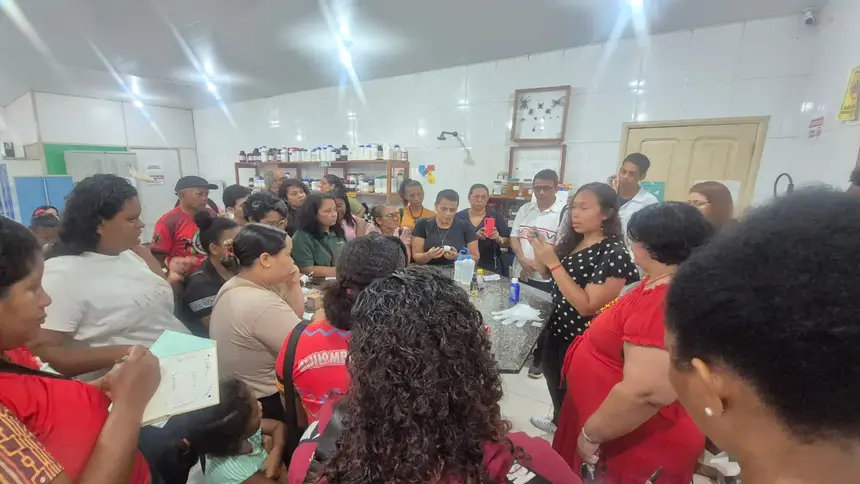
The proposal for community forest management of medicinal species transcends the production of phytotherapeutics. It represents a strategy for empowering quilombola peoples, strengthening cultural identity, and resisting the challenges of environmental degradation and historical invisibility. By recognizing that the future of the forest depends on those who know it deeply, the project points to possible and necessary paths for sustainable development.
“With this initiative, the Institute reaffirms its role as a facilitator of public policies that unite conservation and community protagonism. The success of the seminar and the beginning of actions in the quilombola territory of Marajó demonstrate that protecting biodiversity is, above all, protecting the people who depend on it and who keep it alive with wisdom, respect, and tradition,” concluded Kahwage.



